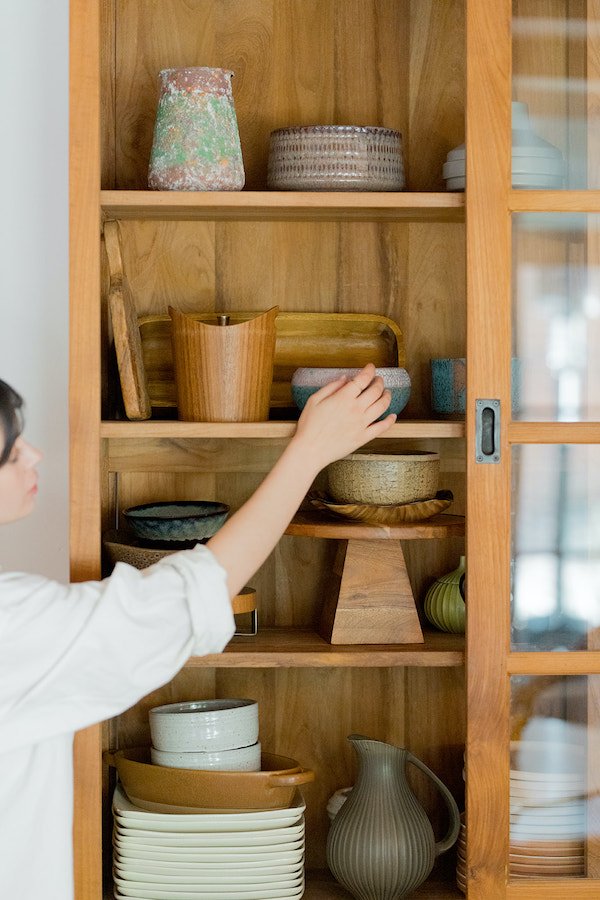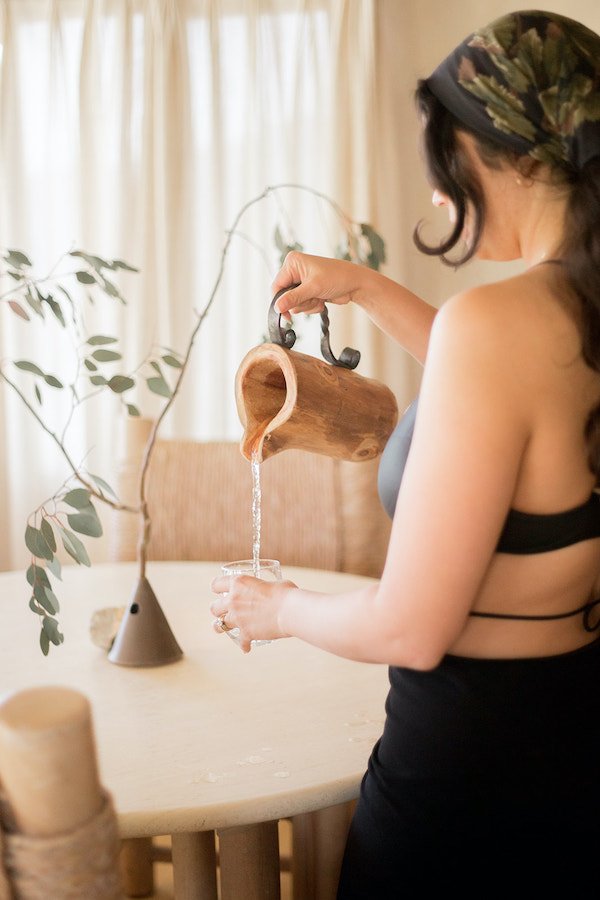
How To Care For Yourself When You’re A Caregiver
It was the 4th of July weekend when I got the call. My younger sister was being admitted to the hospital for strange neurological symptoms. The doctors couldn’t figure out what was wrong. Tests were ordered. Lab work was conducted. Zoom calls were made to other doctors at bigger hospitals in bigger cities. Eventually, my sister was given a prognosis. My husband and I packed the car that afternoon, uncertain of when we’d come back.
“My husband and I packed the car that afternoon, uncertain of when we’d come back. ”
For most of the summer, I learned how to be a caregiver. My sister’s husband took the primary role while the rest of us helped around the clock. This included making hospital runs, stocking groceries, cooking meals, and helping care for their two kids. Those weeks taught me a lot about caregiving and how it can be such a gift—for the people receiving care in their moment of need but also for the ones offering it. Being able to be there for someone you love is an incredible honor.
“Community care works best as a full-circle system.”
Caregiving isn’t easy, though. Giving up your time and energy can be exhausting and challenging if you’re not receiving care yourself. You can’t pour from an empty cup, the old saying goes, and all of us need moments of rest and self-care.
Simply put: caregivers need people too. Community care works best as a full-circle system—I care for someone, and someone else cares for me, and on and on it goes. So whether you’re a current caregiver or looking to support someone who is feeling burned out, here are some of the best tips I took away from my caregiving experience. Hopefully, they can help you too when you most need it.
1. Prioritize quality sleep
In the first few days of caring for my sister, I mostly ran off of adrenaline and coffee—not a great combination for stress. In the evenings, I would collapse in bed and fall into a deep (yet unrestful) sleep or toss and turn until it was time to leave for the hospital again.
It’s probably no surprise that sleep is essential for caregivers (it is for everyone!), but I’ve placed this at the top of the list because it’s often the hardest thing to get in, especially if you’re staying at the hospital. Even if you do get a few hours in bed, anxiety and worry can get in the way of true rest. A few things that helped me:
-
Melatonin. I used melatonin before bed when I knew I had a full night of sleep in my future. On these nights, I also tried to spend a few minutes winding down with a bedtime routine (bath, face wash, warm beverage).
-
Power naps. A 10-20 minute nap using a weighted blanket, eye mask (I love the lavender one from Asutra), and breathing app can do wonders in such a short time, even if it’s in the backseat of your parked car.
-
Not forcing it. For every one night that I kept a routine and got sleep, I had two to three nights of staying up late drinking wine and watching reality TV. We need different things at different times. No judgment.
2. Eat regularly—and prioritize nutrient-dense foods when you can
While caring for my sister this past summer, my husband made sure I ate breakfast before heading to the hospital—which was so much harder than it sounds. Eating when you’re anxious and exhausted can feel impossible, but getting nutrients in your body, and regularly for that matter, is crucial to self-care. It also helps minimize those late-night Chipotle runs and takeout orders (though that is self-care sometimes too!).
What worked for me:
-
Eating a healthy breakfast each day, whether I felt like it or not.
-
Taking vitamins to keep my immunity up.
-
Keeping easy snacks in my bag on hospital visit days (granola bars, trail mix, bananas).
-
Using electrolyte packs in my water to stay hydrated (easier than remembering to drink water all day).
-
Being extremely gentle with myself when I forgot to eat or when I decided to have wine and ice cream for dinner. Again, balance.
Additionally, meal kits, grocery delivery, and setting up a meal train can all be game-changers for caregiving. When my sister returned home, a meal train was organized by her community, and it meant her husband (primary caregiver) didn’t have to worry about cooking or even thinking about dinner.
3. Get outside—and look for the small joys
About two weeks into helping with my sister, my husband and I took an afternoon and drove to a mountain lake where there was no cell reception. For a few hours, we kayaked, swam, and rested on the beach. We were only gone for a short time, but I felt like a new person when we returned. I didn’t realize how tense my body had been or how disconnected I’d felt from myself. Fresh air and sunshine worked like medicine, and I instantly felt my battery recharged.
“Every person’s caregiving circumstances are going to be different.”
Every person’s caregiving circumstances are going to be different. But when you can, try to get outside for a few moments and sit in the sun. If you’re staying at a hospital, go for a walk in the courtyard and take note of the flowers. If you’re caregiving long-term, think about how you can incorporate short walks into your daily routine, possibly alongside the person you’re caring for. I remember when an extended family member was caring for her father, she used to push him around a beautiful pond in his wheelchair. Not only did those walks help them both during that season, but when he passed, the pond served as a reminder of their time together.
4. Allow someone to take care of you
I’ll repeat this one because it’s so crucial: Caregivers need people too; community thrives on circularity. Holding one another up is how we remain strong in adversity and difficult seasons.
“Caregivers need people too.”
For me, this help came from my entire family, but it especially came from my husband. During the weeks I helped care for my sister, he ensured I was fed, rested, and listened to when I needed to vent or cry. He also took care of all the things I didn’t want to have to think about, like rent and bills and making sure our plants in LA were getting watered.
Not everyone will always have another person to help care for them while they are caregiving—if this is you, I see you and send you so much love and strength. While it should not be your job to seek help during these circumstances, resources may be at your disposal, like a caregiver support group, a kind neighbor who doesn’t realize what you’re going through, or a local church community. CaringBridge also has resources for caregivers looking for support.
And if you want to help take care of a caregiver:
-
Start by asking what they need and/or what will be most helpful for them during this time. This Google form template is a wonderful resource to fill out in advance of tough times, so friends and family know how to best support you during a crisis or emergency.
-
Homecooked meals are sometimes better than food gift cards because it removes the extra step of needing to order/pick up food (though both are so appreciated!).
-
Simple grocery drops are often overlooked but so helpful. Think toilet paper, dish soap, diapers and juice (if there are kids at home).
-
Consider self-care gifts that make a caregiver feel seen outside of their role as caregiver. A few of the most meaningful gifts I received included gift cards to my favorite restaurant in LA for when we returned home, a massage, and luxurious skincare.
Remember, it takes a village. You can’t do this alone, and that’s okay. Caregiving is a gift, one of the very best ones you can give. But know that your loved one would want to ensure you’re receiving rest and care too. May you find those pockets for rest and self-care, small as they may be, to help you recharge when you most need it. x
Kayti Christian (she/her) is a Senior Editor at The Good Trade. She has a Master’s in Nonfiction Writing from the University of London and is the creator of Feelings Not Aside, a newsletter for sensitive people.




